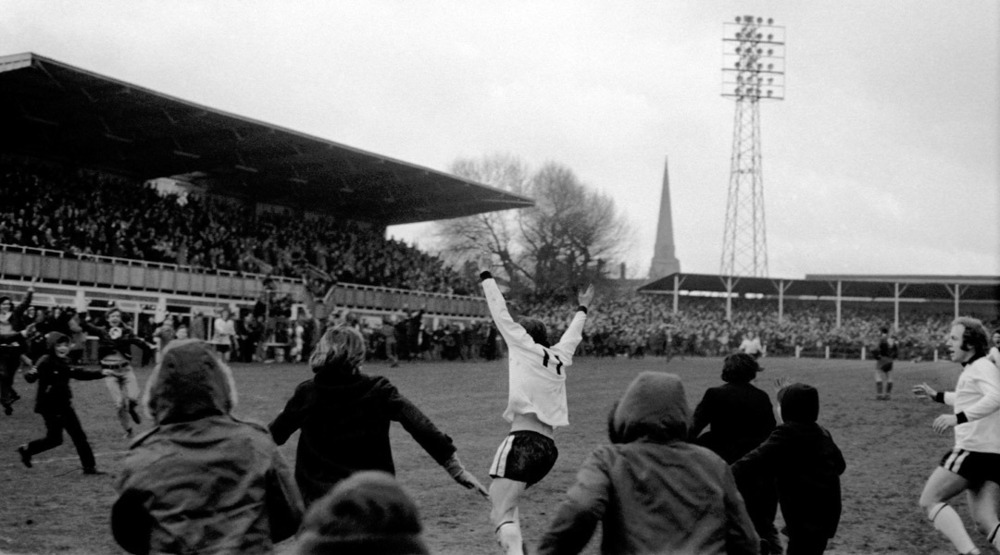
JIMMY KNOX was an inside-forward in his playing days and came `down south` to join Coventry City from Raith Rovers in 1957 but failed to make the grade in League football in England and played just two games for the Sky Blues.
He left the club to join Southern League North West side Rugby Town in 1958.
He went on to and enjoy a successful playing career in non-League football with Rugby, Lockheed Leamington, Corby Town and Banbury Spencer and in his first season at the Windmill Ground in 1964/65 he captained Leamington to the Midland League title.
However, Knox became renowned in Midlands non-League circles for his management feats with AP Leamington in the 1970s and Rugby Town and VS Rugby in the 1980s.
He took the Brakes into the Southern League Premier Division in 1976 and then in 1978 into the inaugural Alliance Premier League as well as five appearances in the FA Cup First round.
Moving to Rugby in 1980 he repeated his success, leading the club to two promotions to the Southern League Premier Division as well as victory in the FA Vase in 1983 and reaching the FA Cup Second Round in 1988.
Knox was awarded a testimonial in recognition of his ten years in charge at Butlin Road and Manchester United boss Alex Ferguson kept his promise made to his former assistant, Archie Knox – Jimmy`s brother – to send a team to Rugby.
Season 1991/92 saw Rugby finish agonisingly close to promotion to the Conference when they ended up in third spot in the Southern Premier Division. However, shortly after guiding Valley to win the Birmingham Senior Cup at the end of that season, Knox resigned after eleven years in charge and, ironically, Rugby were relegated at the end of the following season!
Knox didn`t go back into management after that but did maintain his links with the game as a scout for Glasgow Rangers.
DOUG HUNT started his playing days in the Hampshire League with Winchester City.
Indeed, at Winchester he took over the number 9 shirt from Ted Drake when he left for Southampton in 1931 and later earned fame with Arsenal and England.
Hunt played as an amateur for Southampton, before being taken to the Tottenham Hotspur nursery team at Northfleet in the Southern League and then brought through to the first team at White Hart Lane in 1934.
He found a regular place in the first team difficult to hold down, as he played in the same position as George Hunt and Johnny Morrison, who were prolific scorers. Nor did it help coming into a side heading for relegation. With only 24 games under his belt, he moved on to get first team experience and signed for Barnsley, then Sheffield Wednesday until World War II broke out.
During war-time games, Hunt returned to London to play for Brentford, Fulham, Spurs, Aldershot and West Ham United, winning the London War Cup with Brentford in 1942.
He stayed in the capital after the war, signing for Leyton Orient, until he stopped playing in 1948, when he became assistant manager.
However, soon afterwards he took over as manager at Gloucester City in the summer of 1948.
Success was hard to come by but Hunt did manage to improve things gradually with the Tigers, finishing tenth and then ninth before being tempted to take over league rivals Tonbridge after a short stint as trainer and coach at Yeovil Town, in January 1954.
Although league form was nothing much to write home about either at Tonbridge, he did take them to two Southern League Cup finals in 1955 and 1957.
He also signed Ron Saunders in July 1956 starting him on the road to becoming a top player and manager with the likes of Aston Villa.
In 1958, he returned to the Yeovil coaching staff and stayed for a further 25 years until he left football in 1986.
He died in May 1989 in Yeovil.
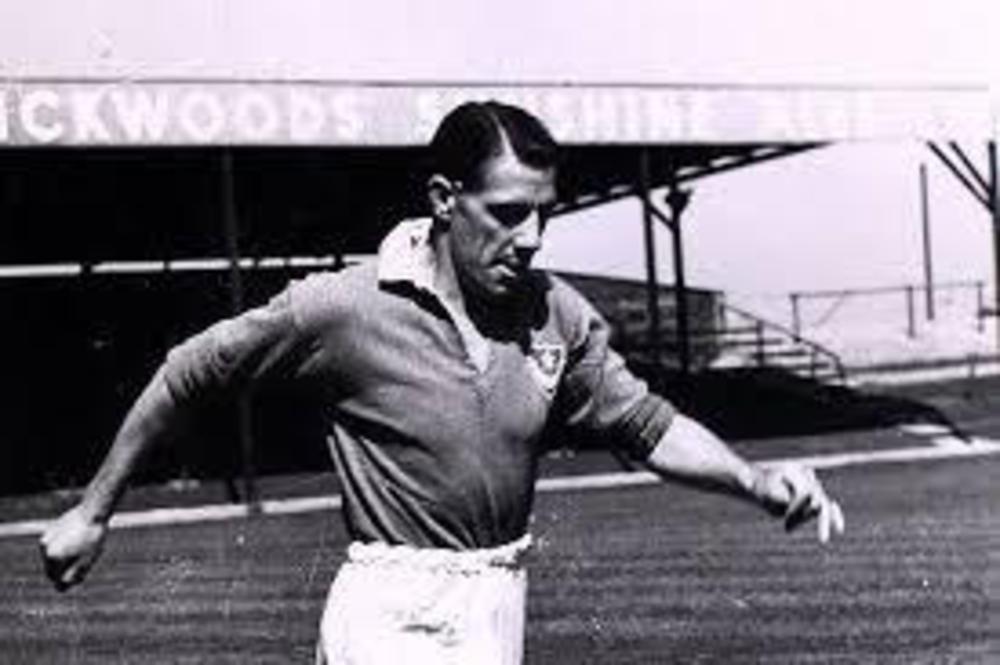
IKE CLARKE (left) was one of Yeovil Town’s most successful managers in terms of trophies won.
Born in Tipton in the West Midlands in 1915, he initially joined West Bromwich Albion, before moving to Portsmouth where he won back-to-back Football League titles in 1948/49 and 1949/50.
Indeed, it was Clarke who scored the goal that won Pompey their first League title in April 1949.
In 1953, at the age of 36, he moved to Yeovil as player-manager, where the supporters club assisted with his wages and the club provided him with a house.
In 1953/54 he made 48 appearances and scored 20 goals and the following season he won the Southern League title and the Southern League Cup, with the Somerset Professional Cup thrown in for good measure.
He made 103 appearances during his stay in Somerset and scored 49 goals.
He was relieved of his duties at the end of 1956/57 season after finishing 16th and moved to Kent, where he managed Kent League sides Sittingbourne and Canterbury City, before retiring to Herne Bay where he died in April 2002 aged 87.
Another successful Yeovil Town boss was Mike Hughes.
The popular figure arrived at Huish Park during the 1968/69 season when he was appointed manager aged just 28 after a professional playing career with Cardiff City, Exeter City and Chesterfield.
Enjoying almost instant success, he missed out on guiding the Glovers out of the Southern League by a single point before a season for the history books the following year.
Claiming the Southern League title for the third time in the club's history, Hughes also masterminded a run to the FA Cup Third Round where Yeovil lined up against Arsenal in front of 14,500 at the old Huish ground. The club also reached the FA Trophy semi-finals.
The manager behind signing some of the club's greatest ever players, Hughes brought in Stuart Housley, John Clancy and Tony Clark as he assembled one of the best ever Town squads.
After three successful years in the job which yielded a win ratio of 55.84%, Hughes left to take the hot seat Torquay United, but his affiliation with Yeovil was not over.
In 1983, he returned as the club's general manager and even took caretaker charge of the first team again before also enjoying roles in the club shop and working with the local community on behalf of the green and whites.
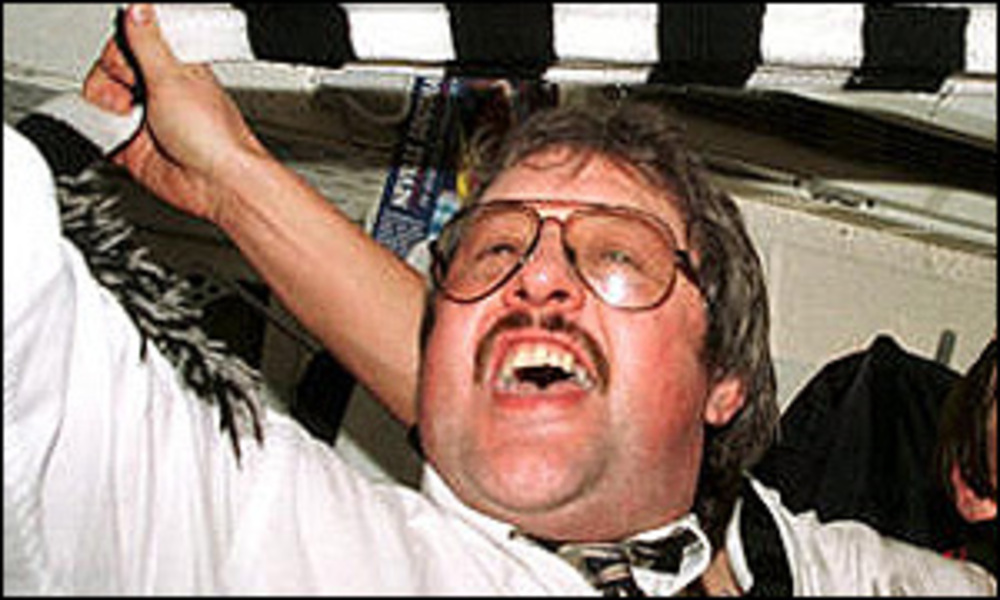
JOHN BALDWIN (right) originally played for Hednesford as a goalkeeper in the 1970s.
He was a decent keeper – good enough to play for England Youth and represent British Universities.
His passion for Hednesford, however, was apparent very early as he was happy and willing to make a 400-mile round trip from university on Tyneside to play in the Midland League for the Pitmen.
After quitting playing and becoming an accountant, Baldwin cut his teeth as a manager with Wolverhampton Sunday League side Electricity and West Midlands (Regional) League outfit Harrisons.
He returned to Hednesford as manager midway through the 1989/90 season when the Pitmen were hovering just above the relegation zone of the Southern League Midland Division.
In the following seasons, Baldwin led the club to promotion to the Premier Division plus the finals of the Staffordshire Senior Cup, Birmingham Senior Cup and Welsh Cup when they narrowly lost to Cardiff City at the National Stadium, Cardiff.
After finishing fourth in his first season as a Southern Premier Division club, Baldwin`s side dropped to 13th in 1993/94 before storming to the title the following season, winning the championship by a seven-point margin from Cheltenham Town.
Hednesford were approaching the end of the lease on their old ground, Cross Keys.
Baldwin's background in finance prompted the chairman, Mike Smith, to invite him to negotiate its sale.
He became vice-chairman as well as manager, put up the money to buy a plot of land to develop a venue which met the Conference criteria, and the stadium was completed during the summer of 1995, at a cost of £1.3 million.
Baldwin quit as manager in December 2000 – the club were relegated from the Conference at the end of that season - and then left Hednesford altogether at the end of the 2001/02 season after acting as an advisor.
He subsequently joined Kidderminster Harriers as an associate director in December 2002.
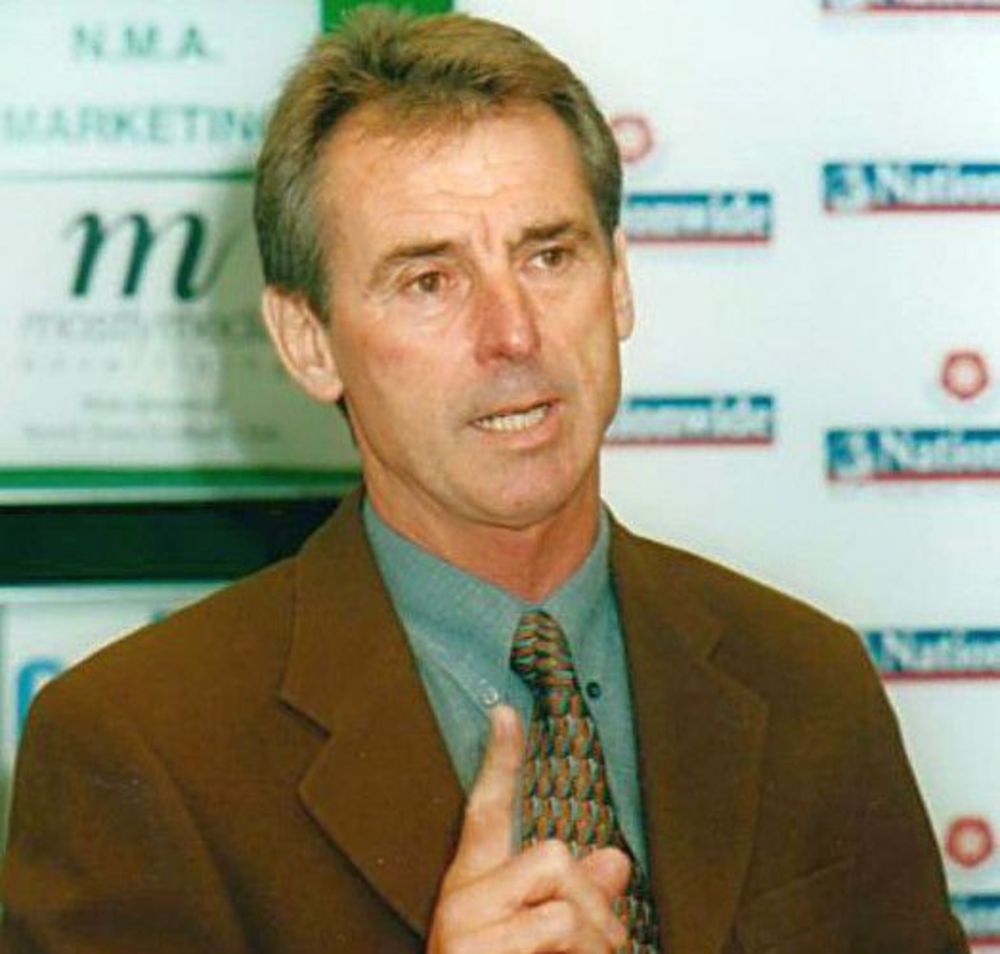
COLIN ADDISON (left) only actually managed in the Southern League for a total of three seasons – one famous season with Hereford United and two with Merthyr Tydfil some 25 years later.
A very good forward or inside forward as they were known back then, Addison made over 400 Football League appearances for the likes of York City, Nottingham Forest, Arsenal and Sheffield United and scored 127 goals.
He took on what looked like being an unenviable task in replacing the legendary John Charles as manager of Southern League Premier Division club Hereford as player-manager in October 1971 at the age of 31.
He inherited a good squad of players from the former Welsh international star and, as a reward for reaching the Second Round Proper of the FA Cup in 1970/71, were exempt until the Fourth Qualifying Round the following season, so one of Addison`s early games in charge was the tie against Southern Division One North side Cheltenham Town which was won 3-0 at Edgar Street.
Cheltenham`s league rivals King`s Lynn away was the Bulls next opposition in the First Round and a 0-0 draw at The Walks in a game played in thick snow was followed by a 1-0 home win in the replay, courtesy of a Tony Gough goal.
With ears tuned to the radio for the Second-Round draw, a home tie with Fourth Division Northampton Town was a slightly disappointing outcome for Hereford players and fans.
Like at King`s Lynn, a goalless draw in the initial tie meant a replay at the old three-sided County Ground.
Hereford scored through Dudley Tyler and Brian Owen but the Cobblers battled back and it ended 2-2.
No penalty shoot-outs back then, so it was to another replay on a neutral ground which was West Bromwich Albion`s Hawthorns, and a last-gasp equaliser from Addison`s former Sheffield United team-mate, defender Ken Mallender, mean extra-time in which Tyler scored the all-important goal to take Hereford through to the Third Round.
This time the ball out of the famous velvet bag before Hereford`s was First Division Newcastle United at their famous St James` Park ground.
Brian Owen gave the Bulls a shock early lead but when burly centre-forward Malcolm MacDonald, signed in the summer of 1971 for a big fee then of £180,000, and John Tudor put the Magpies 2-1 up, it looked like being a routine win for the giants.
However, a goal often forgotten about due to what was to come from player-boss Addison stunned the majority in the 39,300 crowd as the Bulls earned a money-spinning replay.
The team of part-timers went down in FA Cup folklore with that infamous replay win over Newcastle and THAT goal from Ronnie Radford, the pitch invasion that followed, and John Motson`s commentary which all gets rolled out of the archives every season when the Third Round comes around.
What is often forgotten is that Hereford also held First Division West Ham United – Bobby Moore, Geoff Hurst et.al, to a 0-0 draw before a power strike meant a Monday afternoon replay at Upton Park which the Hammers won 3-1, courtesy of a Hurst hat-trick.
On the back of the fantastic FA Cup run and a second-place finish in the Southern League in 1972, Hereford were elected to the Football League and Addison continued as player-manager until an injury forced him to hang up his boots in November 1973.
He left Hereford to take a lucrative job to manage South African side Durban City in 1975 and went on to have a well-travelled managerial career at home and abroad, most notably with Derby County, Athletico Madrid, Cadiz and a second short spell with Hereford and then returned to the Southern League with Merthyr Tydfil.
Addison`s two seasons in Wales saw the Martyrs finish ninth and second before he returned to the League with Scarborough.
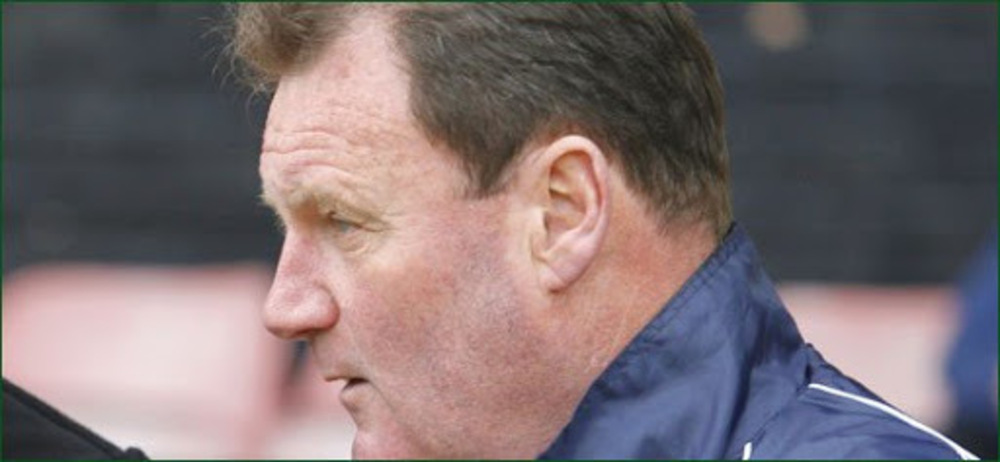
It was often said locally that had Kettering Town been able to keep hold of manager MICK JONES (right) and his assistant Jeff Lee when the club became founder members of the Alliance Premier League in 1979/80, then things may well have turned out differently.
As it was, Jones led the Poppies out at Wembley for the 1979 FA Trophy Final against Stafford Rangers with Lee, who was still playing at left-back at the time, knowing that it was to be their last act as the club`s management duo.
Kettering had, and continued to have, some well-known names in the managerial hot seat, including former England stars Tommy Lawton, Jack Froggatt and Paul Gascoigne, Scottish internationals Don Masson and Bill Collier, Irish legend Derek Dougan and, of course, Ron Atkinson.
When Dougan`s often controversial spell in charge ended in 1977, Kettering turned away from the `big names` being bandied about as his successor and went for a rookie player-manager in Mick Jones.
Jones had been a decent lower league centre-back with Notts County and Peterborough United, making over 200 League appearances before being tempted over to Canada with Ottawa Tigers as player-coach in 1976.
But he was soon back in England and was appointed player-manager of Southern League Premier Division Kettering.
Jones soon gave up playing and, along with one of his first signings, former Posh team-mate Jeff Lee as player/assistant manager, and built what was widely viewed as one of the best and most exciting sides seen at Kettering for many years, eventually leading them to the 1979 Trophy Final and a second-place finish in the league after an exciting battle with Worcester City for the title.
Although Kettering lost that final to Northern Premier Leaguers Stafford Rangers, Jones` reputation was spreading and it came as no surprise to outsiders – but a massive disappointment to Poppies fans – when he was offered his first managerial role in the Football League with Division Three outfit Mansfield Town that summer.
He stayed at Field Mill for two years, but when newly appointed player-manager Roy McFarland offered him a job as his assistant at Bradford City in 1981.
The pair then went to Derby for a brief period before Jones took over at Halifax Town in 1984.
Two seasons later he was named Noel Cantwell's assistant at his old club Peterborough United and, after reaching the play-offs, he became manager of the club in July 1988.
It was at London Road where Jones first became acquainted with Neil Warnock and, after leaving Peterborough in August 1989, Jones became number two to Warnock at another of his former clubs, Notts County.
In their first two seasons together, the pair spearheaded successive promotions - the latter to the top-flight.
Jones followed Warnock to Huddersfield in 1993 and within two years they had led the club to their first-ever Wembley appearances in the Autoglass Trophy and play-off finals, which culminated in Huddersfield reaching the second tier.
A move to Plymouth Argyle, again with Warnock, followed in 1995 and yet again they inspired Argyle to promotion via a first-ever Wembley appearance.
When Warnock left Argyle in 1997, Jones took over the Devon club.
He was in charge for little over a season and left to become head coach of Brunei's national team in 1998.
In 1999, Jones led the tiny Borneo province to its first-ever Malaysian Cup Final appearance.
Three years later he returned to England and had spells as assistant manager at Nuneaton Borough and manager of AFC Telford United prior to re-uniting with Warnock at Sheffield United.
This was in 2005, and his assistance coincided with United's promotion to the Premier League, although they went straight back down again on the final day.
Jones left Bramall Lane with Warnock, but the pair were together again at Crystal Palace, then Queens Park Rangers and Leeds United, before Jones returned briefly to Notts County as assistant to Chris Kiwomya.

Most clubs are looking for volunteers. Find out more on the button below:
www.PitchingInVolunteers.co.ukAll the news and results in one place.
REGISTER